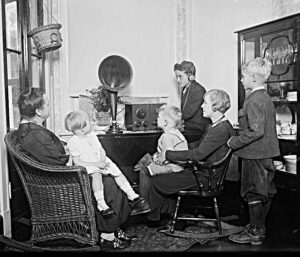Positive situational awareness means someone knows what is going on around them.
There is a walker in front of my house that I see almost every day. He is clearly diligent in getting some exercise. But here’s the thing: he walks, head down, staring at his right hand. Though he passes others in neighboring yards and on the narrow sidewalk, he seems mesmerized by the screen he is holding. I expect that eventually he will fly off the edge of the curb one day when gravity reminds him that multitasking can be dangerous. Walking and reading at the same time are not really companionable activities. This pattern repeated on most pedestrian routes everywhere is a reminder of a minor violation of the social contract. Simply put, we should first notice others and acknowledge them: not every time and not all the time, but sometimes. The norm might be a verbal greeting, or at least a friendly glance.
What have we lost when it is no longer routine to affirm someone in their presence? It’s a signal of something bigger that has been building for several decades.
This awareness of people passing within our personal space ties into the useful idea of “situational awareness,” which applies to everyone from airline pilots to close encounters on a sidewalk. Positive situational awareness requires that a person notice what is going on in the real world around them: perhaps noticing a pedestrian about to step in front of an oncoming car, a baby verging near the edge of a swimming pool, or even a large boat about to crash into a quay.
We were not made to be mentally immobilized by our portable devices. Such is our fractured attention that we miss experiences where we might engage. I’ve told this story before: a trip to the South Rim of the Grand Canyon through brush-covered flat prairie, suddenly coming upon the breathtaking gorges extending to valley floors too deep to see. This miraculous break in the landscape of the high desert can leave one speechless. I’ve seen first-time viewers break into tears at the awesome sight. Within a few feet of the sheer rim we noticed a family pulled over in their car. They have apparently just arrived. The parents walk to a nearby precipice to take in the wonder of it all, but their children are still in the car watching a video.
The relatively new social configuration of being “alone together” is one cause of missing interactions in everyday encounters.
 There is a bigger point here. We are still in the first generations of a tectonic shift in how humans interact. Roughly speaking, for thousands of years communication with others in our species was direct and unmediated. Human groups lived together and constructed social selves from daily experience. But especially after the birth of commercial radio in 1920, our relationships with each other began to rapidly change.
There is a bigger point here. We are still in the first generations of a tectonic shift in how humans interact. Roughly speaking, for thousands of years communication with others in our species was direct and unmediated. Human groups lived together and constructed social selves from daily experience. But especially after the birth of commercial radio in 1920, our relationships with each other began to rapidly change.
I’ve probably buried the lede here. But in the history of the species, the advent of radio is a key thershold that has helped initiate us into what is now the norm of trucated communication. For better or worse, it put listeners on just the receiving end of mediated messages. No need to react, respond, or acknowledge. A mediated message is filtered through some mechanical-electrical tool and often stripped of the nuances of face-to-face communication. True, books, letters and newspapers existed decades earlier. But in the west radio was more revolutionary than evolutionary. It was the first widespread medium where a family could be in the same room, but left to the stimuli of an external source that isolates the consciousness. This relatively new social configuration of being “alone together” is one cause of missing interactions in everyday encounters. In media analyst Sherry Turkle’s words, “we expect more from technology and less from each other.” And so we have a acquired a fairly recent incapacity. Media and even portable phones have retrained us to be more comfortable in our own heads. Like that walker I first mentioned, many of us seem to be more solitary souls, saving full and rich interaction only when it is necessary.
